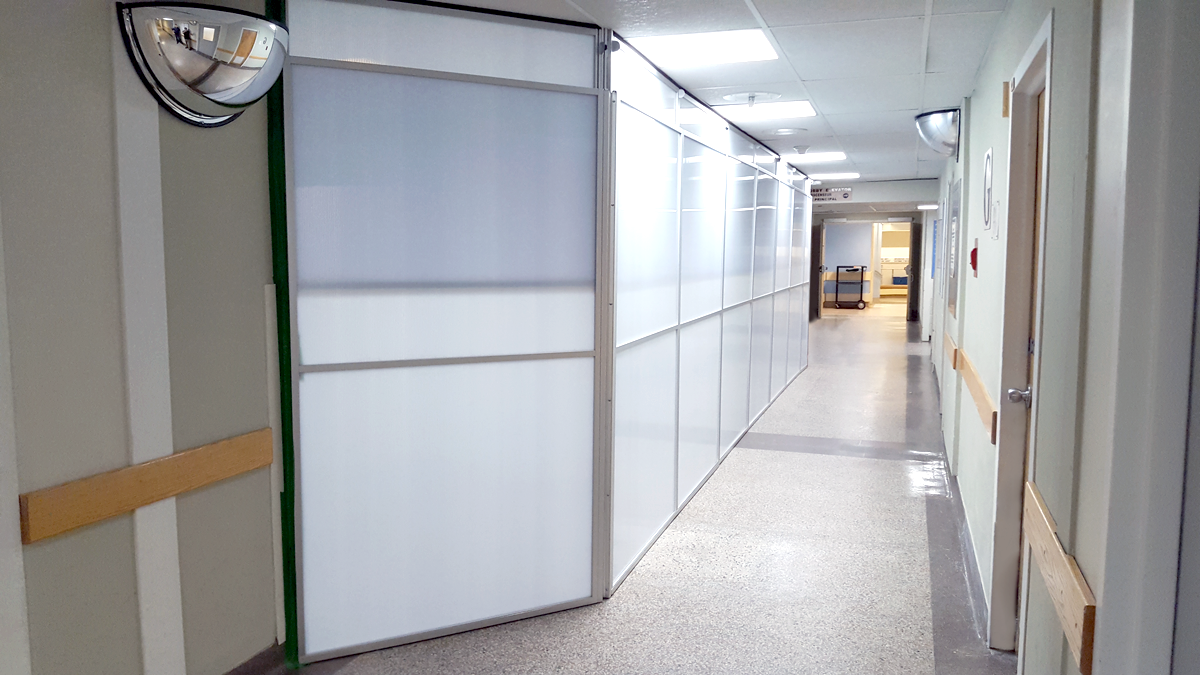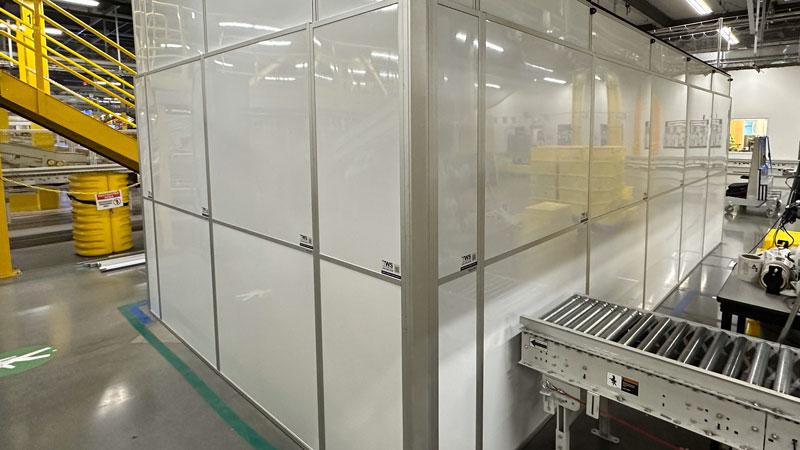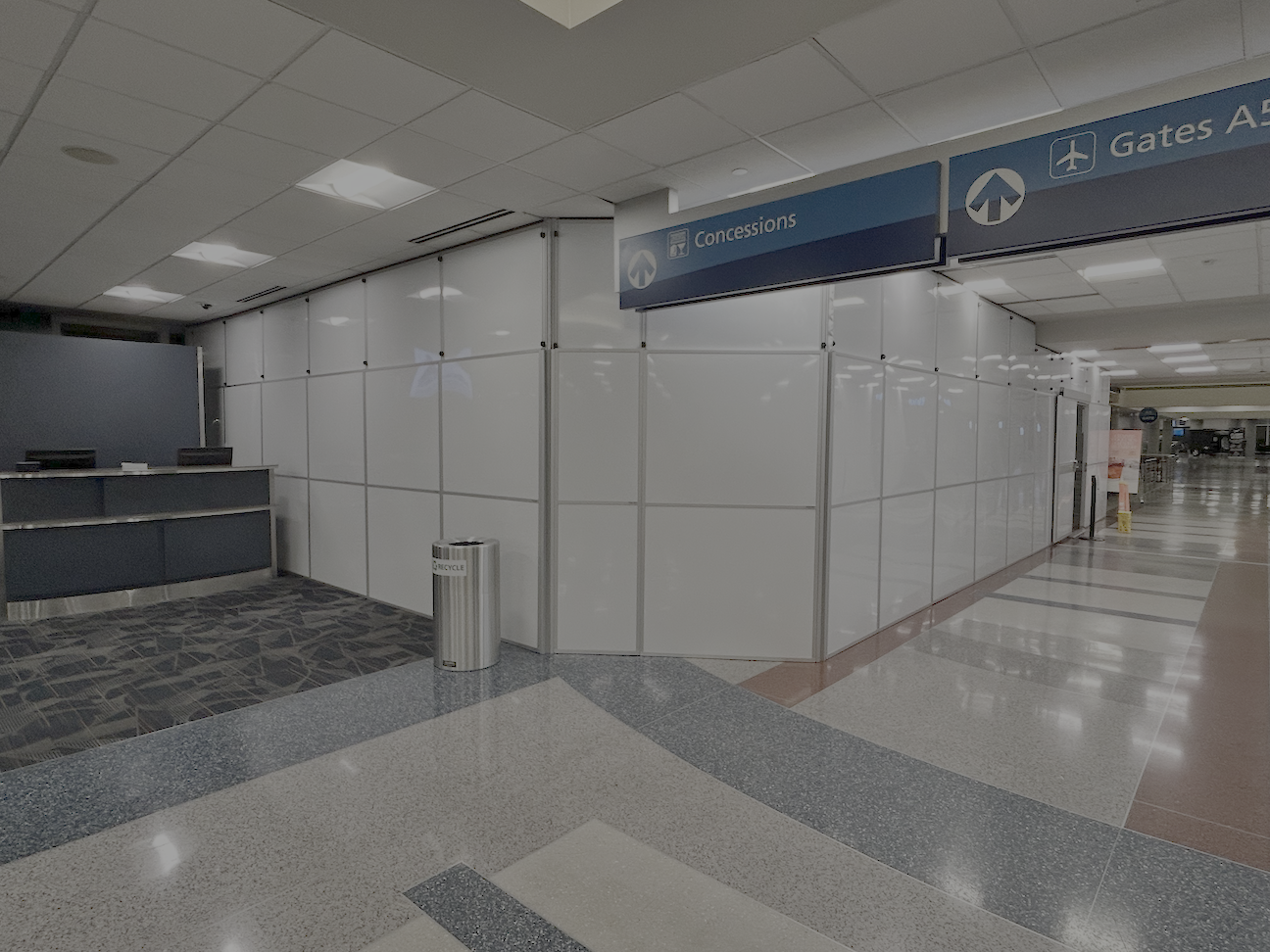The United States is investing heavily in healthcare modernization through renovation and construction. Upgrading facilities, expanding laboratories, and integrating new technology are great for patients and staff. However, construction phases pose health risks of their own.
Today, we’re exploring how to prevent dust in healthcare renovations. We’ll learn why it’s a problem and why modular dust barrier systems are the answer.
Why is dust a concern in healthcare renovations?
Dust transports airborne viruses and bacteria. Everything from the flu to Aspergillus can make its way to a patient on a particle of dust. Dust triggers allergies and can irritate compromised respiratory systems. This interrupts patient treatment, increases staff sick days, and leads to poorer health outcomes.


ICRA requirements
The Centers for Disease Control and Prevention (CDC) has a comprehensive set of guidelines for infection control.
Section C of Part II calls for an Infection Control Risk Assessment (ICRA) prior to any construction or renovation of a healthcare facility. One of the primary objectives is controlling and preventing dust.
ICRA helps designate the level of risk posed by construction in various areas of a healthcare facility. For instance, an administrator’s office would be at Low Risk while an oncology unit would be Highest Risk.
To get a complete breakdown of risk areas and precaution measures, see our complete guide to ICRA barriers.
Modular walls prevent dust in healthcare facilities
Any organization wondering how to prevent dust in healthcare renovations should look no further than temporary walls. They offer better blockage that can adjust with project phases and risk levels.
An effective seal
The flexibility of modular walls makes it possible to configure complete coverage. Fit them to the dimensions of any project to control air pressure and reduce the spread of airborne bacteria and viruses. They can even be installed to make anterooms for decontamination between risk zones.
Sustainable and scalable
Modular walls are easy to clean and reusable. Solutions such as plastic sheeting and drywall create waste and are best for either short-term (plastic) or long-term (drywall) use. Portable wall systems can be used for any length of time before moving to the next project.
Fewer disruptions
Solutions such as drywall create noise, take time to finish, and make more dust. Modular walls offer quick, dust-free installation and removal.
They also have a thick foam core that reduces noise while in use. Patients and their visitors are subject to less disturbance during construction.
ICRA compliant
TWS dust barrier solutions are ICRA compliant from Class I to Class V, covering every requirement in each risk group. They’re also Class A fire-rated, the highest standard in controlling flame spread and smoke development.
Read more about creating a dust barrier system using temporary walls.
Put health first with TWS
Healthcare facilities already do a lot to control infection. Renovation can complicate these efforts as dust spreads, carrying contaminants.
Temporary Wall Systems (TWS) carries a full lineup of modular systems designed to prevent the spread of dust in hospitals, surgical centers, nursing homes, clinics, and more. Let us help devise the most effective dust barrier system for your renovation.
With a cost-effective rental agreement and full-service installation and removal, it’s the most convenient way to minimize disruptions and stay ICRA compliant.
Healthcare facilities already take appropriate measures to keep dust out, but this becomes much more challenging once construction starts. Most types of renovation, from drywall and flooring to masonry and plumbing, can produce a lot of dust.



